I like travelling. I did a lot of it when I was younger, especially international. I didn’t get to visit as many places as I’d like, but I was able to see a fair share. I liked to see and experience things.
Into my 30s, a beautiful woman took me to be her lawful, wedded husband, and we started a family. I traveled less overseas and more around Texas. I was able to see new parts of my home state with my family and experience varied and fascinating places and things with my wife and kids.
In the early aughts, I began dabbling in freelance journalism, doing some writing about the fun-filled, profound travel experiences I’d had with my kids. In fact, one of the first pieces I had published in a major Texas magazine detailed something we’d discovered together on one of our excursions.
Later on, I was approached by the Reedy Press to write a travel guide about a city in Texas. I told them I wasn’t interested in writing a travel book about a particular community, but I would be interested in tackling the entire state.
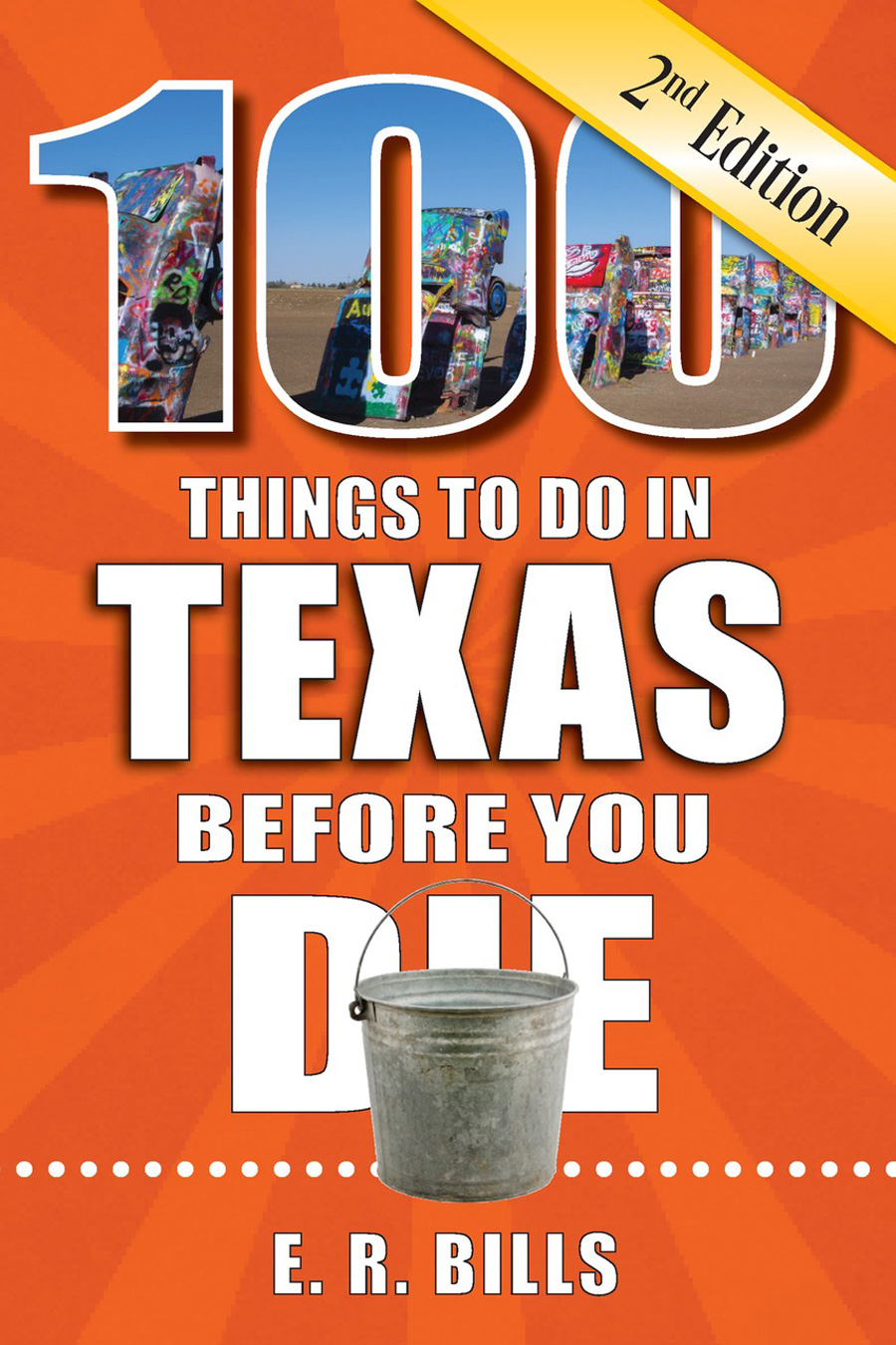
The Reedy Press said they didn’t do “statewide” travel guides, so I politely declined their offer and thanked them for their interest. Then they got back with me, agreeing to publish a statewide travel guide. I was thrilled. The first edition of 100 Things to Do in Texas Before You Die was published in 2018, to no small acclaim. It included some images of my kids and discussions related to experiences I’d had with my wife and children. It was the chronicle of the fulfillment of a dream.
You see, early on, I’d begun carrying colored markers and 4-by-6 index cards along with us on our journeys, and after experiencing some adventures or taking in some of the sights, I encouraged my kids to draw pictures of what they’d seen or experienced on the blank side of the index cards. Then we converted them into postcards, scribbling a blurb and our address on the opposite side and placing a stamp. I had postcard records of some of the experiences and a treasure trove of memories in a stack of index cards held together by a rubber band. Family fun as a secret weapon when I went to write the book.
100 Things to Do in Texas Before You Die was well-received and a success for Reedy Press. In fact, within a year or three, they’d published six or seven other “state” travel guides and one on Puerto Rico!
In early 2022, Reedy approached me to do a second edition of my Texas travel guide, and I initially balked. I had too much going on. I didn’t know what else I had to add. But then I reread the first edition. I realized I’d missed a few things and, occasionally, been a little high hat. I’d neglected subjects like NASCAR and professional wrestling, which, though not appealing to me, did appeal to many Texans and comprised phenomena that Texas played a huge part in the history of.
I agreed to do a second edition, and it was released on Oct. 13, 2022 — the birthday of my oldest twin children. It was thrilling, again, and something I was very proud of. To borrow a phrase from legendary recently departed Czech-French Nobel Laureate Milan Kundera, the “unbearable lightness of being” (and/or wonderful, sustaining memories of real-life excitement and adventures) never really leaves you, and it’s a joy to share it — especially twice. And especially when it depicts the thrill of exploring the richness, diversity, and numerous wonders of the state of Texas!
The thing is, however, the Reedy Press stipulated that I do a certain number of events and appearances to promote the book, so several months back, I lined up something local. Right here in Fort Worth. I arranged to do a reading, signing, and Q&A at the Ridglea Public Library on Sep. 21, 2023. I set up the appearance and marked it on the calendar. I was elated. Maybe even some of my kids, now grown, could be there.
In the meanwhile, I noticed that the files I’d accumulated for over a dozen nonfiction books I’d written (on heavier subjects) and historical markers I’d worked on now practically filled an entire closet. The material was near and dear to me, but there were reams of information and files chock-full of subjects I’d never get around to writing about.
I needed to store it elsewhere. And I needed to store it somewhere that other researchers might have access to it.
I contacted the Mary Couts Burnett Library at TCU.
It permitted local access for me, afforded my papers the prestige of one of the most respected Lone Star State universities, and it was an institution my parents always loved. I had been a Texas State University grad, but I still had a soft spot for the Horned Frogs, and I knew plenty of talented folks who had attended TCU.
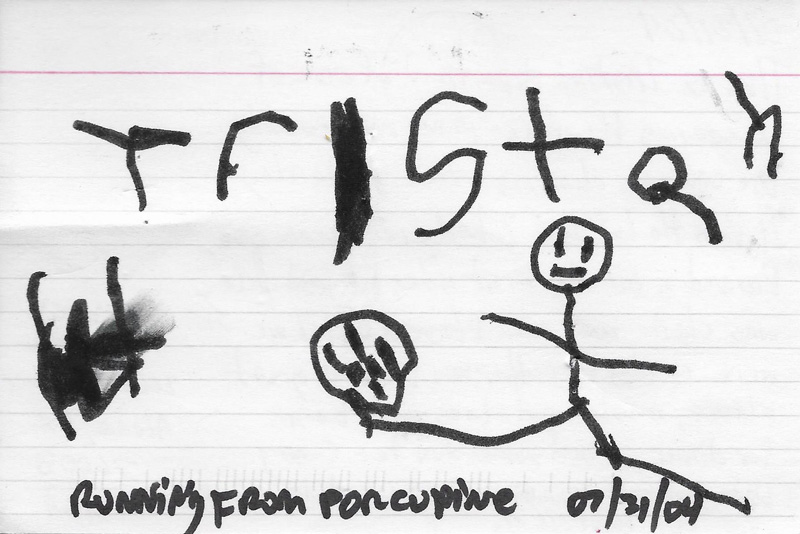
Courtesy the author
The library personnel seemed excited about the acquisition of my research, and I donated the lot. In fact, I handed it over for cataloging on Aug. 1, 2023. All it required was the signing of a three-page agreement granting them the copyrights to my nonfiction research. It could be stored there for posterity. It could be housed there to spur future historical investigations and scholarly works. This, too, was thrilling.
On Friday, July 21, however, I had gotten an email from the Fort Worth Public Library folks informing me that I’d receive a second email with a contract that I’d have to sign to secure the stamp of officialdom that sanctioned my appearance to discuss travel in Texas on Sep. 21.
I got busy with other things and didn’t even open it.
Five days later, I got a second email reminding me that I needed to open the contract, give it my electrical “John Hancock,” and return it, so the next day, I opened it.
The first thing that struck me was the length of the document. It ran 11 pages.
Sheesh, I thought. That’s longer than my introductory presentation on Texas travel at the event would be. I was more a fan of the Q&A, swapping pointers, sharing adventures, and hearing recommendations of different places in Texas to give a gander.
The document also had to be accessed in Adobe Acrobat Sign, and though I wanted to read a hard copy, I couldn’t figure out how to print it, so I started plodding through the droll onscreen scroll. There were over 30 sections and some of the last few stopped me in my tracks.
I was identified — contractually, by the document — as a “performer.” OK, I thought. But, as a performer, some of the last few sections were clearly unconstitutional and blatantly mandated censorship. They didn’t have anything to do with what I wanted to talk about at the Ridglea library and they were an insult to my rights as a Texan and an American.
I could hardly believe my eyes.
There were stipulations tucked into the contract that didn’t seem very Texan at all. I recorded some of the despotic vernacular and shook my head.
To wit, if I wanted to go extol the virtues of traveling and really seeing Texas (swapping pointers, detailing wondrous road trips, and sharing my enthusiasm for exploring my Lone Star home) at a Fort Worth public library, I had to commit to various (and arguably nefarious) Texas government codes and acts.
Section “XXX. PROHIBITION OF BOYCOTTING ENERGY COMPANIES” stipulated that as said “Performer,” (1) I do not “boycott energy companies; and (2) will not boycott energy companies during the term of this agreement.” Hell, No. 60 in 100 Things to Do in Texas Before You Die is “Explore Gushers at the East Texas Oil Museum” in Kilgore.
Section “XXXI. PROHIBITION ON DISCRIMINATION AGAINST FIREARMS AND AMUNITIONS INDUSTRIES” stipulated that the “Performer’s signature provides written verification to City that Performer: (1) does not have a practice, policy, guidance, or directive that discriminates against a firearm entity or firearm trade association; and (2) will not discriminate against a firearm entity or firearm trade association during the term of this agreement.” No. 58 in 100 Things to Do in Texas Before You Die is “Trace the Footsteps of Doc Holiday and Wyatt Earp at Fort Griffin” in Albany.
Oh, and somewhere prior to these sections the contract stipulated that I can’t boycott (i.e., badmouth) Israel.
This was not thrilling.
In fact, it was chilling.
Does the Texas state legislature harbor a gaggle of retired Kremlin, KGB, or old Stasi castoffs to write policy for it now? Is this what a Texas travel advocate has to sign to share travel tips, off-the-beaten-path tidbits, or tales of epic meanderings?
Is this who we are now?
Is this what Texans really believe in?
Has Texas become a fascist state?
I subsequently replied to the contractee, informing them that I could not in good conscience sign the contract. Selling a few books about Texas travel is a good thing — but, sorry, not at the risk of selling your soul as a Texan.
This column reflects the opinions and fact-gathering of the author and not the Fort Worth Weekly. To submit a column, please email Editor Anthony Mariani at Anthony@FWWeekly.com. He will gently edit it for clarity and concision.
Fort Worth native E.R. Bills is the award-winning author of Tell-Tale Texas: Investigations in Infamous History.



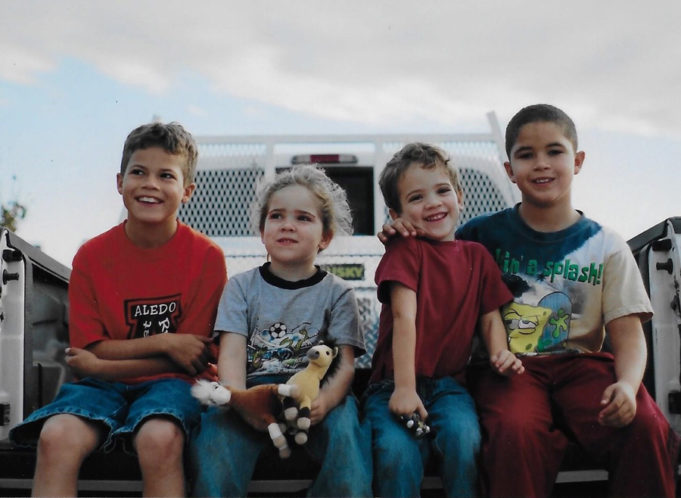


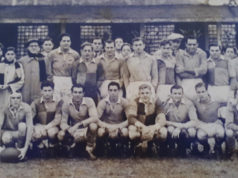
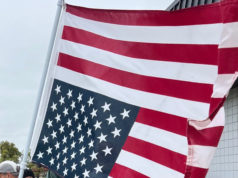





What Mr. Bills did not mention is that the contract also had a clause prohibiting boycotting Israel! Why is this a factor? Like E.R. Bills I fear we have crossed the line into fascist territory.
And how many millions of taxpayers dollars went to publishing/printing/instructing how many organizations to use these “contracts”??? Keep up the good fight, Mr. Bills.